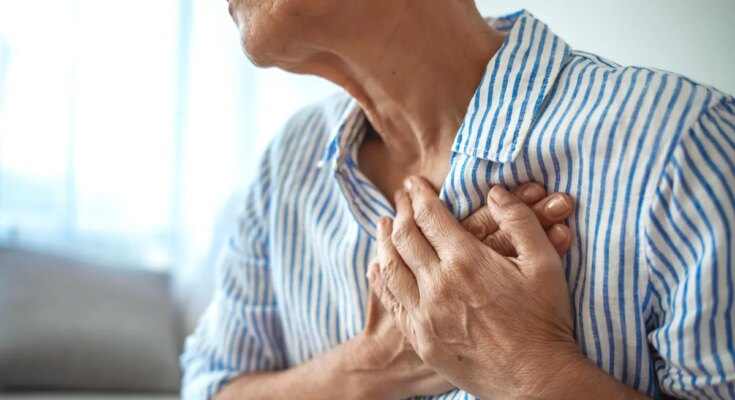Dangerous like a heart attack
How broken heart syndrome manifests itself
Updated 11/21/2025 – 7:41 amReading time: 2 minutes

Separation and death, but also great joy, can put pressure on the heart until it completely breaks. Doctors talk about broken heart syndrome.
First of all, everything points to a heart attack: People with broken heart syndrome – also called Takotsubo syndrome – have typical symptoms such as tightness and chest pain or shortness of breath. Even a blood count showed elevated levels of certain enzymes – a classic indication of a heart attack.
However, a closer look at the muscle, for example with the help of a cardiac catheter, shows that there is no relevant blockage of the coronary arteries, as occurs in a heart attack. There is also no damage to the heart muscle in broken heart syndrome. It is estimated that about two percent of heart attack diagnoses are broken heart syndrome.
Takotsubo syndrome is believed to be caused by an excess of stress hormones in the body. Therefore, doctors also call this syndrome stress cardiomyopathy. As a result of these stress hormones, the muscles in the heart become tense. The main pumping chamber enlarges and the organ can no longer pump properly.
The cause of broken heart syndrome is not clearly known. However, researchers now agree that there are also genetic reasons why someone is at increased risk. Certain people are more likely to experience such events because their heart cells are more sensitive to stress hormones.
In addition, pumping disorders are more common if they run in the family. There are cases around the world in which several family members, usually siblings or twins, suffer from broken heart syndrome. Similar attacks also occur repeatedly in five to ten percent of patients, which also suggests genetic involvement.
It is surprising that this disease occurs in about 90 percent of cases in women after menopause. At this time of life, the loss of a partner is more common, which can be a trigger for broken heart syndrome.
If broken heart syndrome occurs, the patient must be immediately treated in intensive care because impaired heart function can trigger cardiogenic shock. In this case, the heart pumps so little blood throughout the body that the organism no longer gets an adequate supply of blood and oxygen. This could have fatal consequences.



